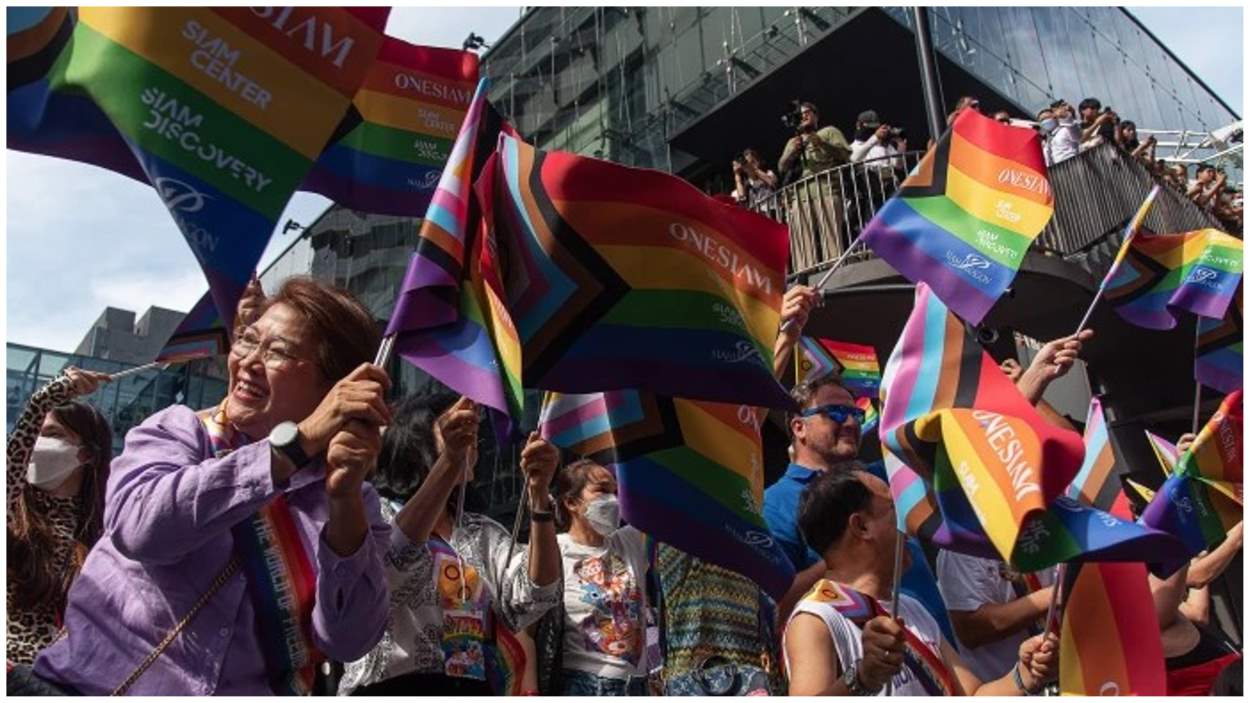Thailand has taken a landmark step by becoming the first Southeast Asian country to legalize same-sex marriage. However, critics argue that the legislation falls short of fully recognizing the rights of transgender and non-binary individuals.
On Tuesday, the Thai Senate passed the legislation with an overwhelming majority, securing 130 votes in favour against just four opposed, with 18 abstentions. Advocates of the legislation are hailing it as a substantial victory for equality.
Following the Senate’s approval, the law will be presented for royal assent and become effective 120 days after publication in the Royal Gazette.
Tonyawat Kamolwongwat, a member of parliament from Thailand’s “Progressive Move Forward” party, expressed his enthusiasm before the vote, stating, “This is a victory for the people. Today is a day for Thais to smile. It’s a win for the people. At last, it is happening in Thailand.”
Thailand now joins Taiwan and Nepal as the third country in Asia to grant legal status to same-sex marriages, ensuring that same-sex couples have equal rights in matters of adoption and inheritance akin to those of heterosexual couples.
Thai Prime Minister Saritha Thavisin, who also identifies as part of the LGBTQ community, vocally supported the bill. To celebrate this legislative achievement, she plans to organize events at her official residence to honour LGBTQ activists and supporters.
Thailand has long been recognized for its supportive stance towards the LGBTQ community, and recent surveys have shown substantial public backing for marriage equality.
Since the Netherlands pioneered legal recognition of same-sex unions in 2001, over 30 countries globally have followed suit in legalizing same-sex marriages.
Although the new legislation enjoys widespread support within Thailand, the country with a Buddhist majority still holds to traditional and conservative values. Despite the visibility and presence of LGBTQ individuals in Thai society, many continue to encounter daily challenges and discrimination.
The new legislation has been critiqued for its failure to fully address the rights of transgender and non-binary individuals, particularly in terms of amending gender identification on official documents.






